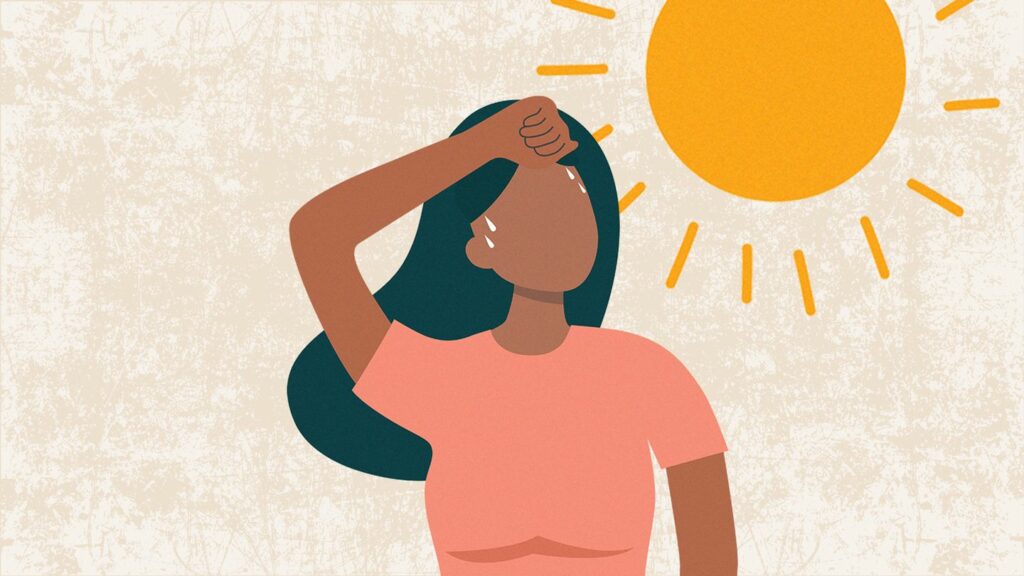Intermittent fasting has become a popular way to lose weight and improve health, but it’s not without risk. Recently, there has been an increase in reports of people developing intermittent fasting eating disorders. In this blog post, we will discuss what intermittent fasting eating disorder is, and how to avoid it.
Contents
What Is Intermittent Fasting Eating Disorder?

Intermittent fasting eating disorder is when a person excessively restricts their calorie intake for a prolonged period. This can lead to severe malnutrition and even death. While fasting has been traditionally used as a spiritual practice, it has become increasingly popular as a weight loss method. Intermittent fasting can be dangerous if not done correctly. It is important to speak with a doctor before starting any type of fasting diet.
This disorder is also known by other names, including anorexia nervosa religiosa and fasting bulimia.
Intermittent fasting eating disorder is a serious condition that requires treatment. If you or someone you know is struggling with this disorder, please seek professional help. There may be many reasons why someone would develop intermittent fasting eating disorder, but there are treatments available that can help.
Symptoms of Intermittent Fasting Eating Disorder

Intermittent fasting eating disorder is not only about the food you eat, but also how you feel about yourself and your relationship with food. There are a few key symptoms to look out for:
Guilt or shame around eating
One of the most common symptoms of intermittent fasting eating disorder is feeling guilty or ashamed after eating. This can be due to several factors, such as feeling like you’ve overindulged or that you’re not sticking to your diet.
Feeling out of control around food
Another symptom of intermittent fasting eating disorder is feeling out of control around food. This may manifest as bingeing, overeating, or obsessively thinking about food.
Restrictive eating
If you’re restricting your food intake to lose weight or make up for a “cheat meal,” this can also be a sign of intermittent fasting eating disorder. Restrictive eating can lead to feelings of deprivation and eventually lead to binging or overeating.
Unhealthy weight loss
If you’re losing weight in an unhealthy way, such as through severe calorie restriction or purging, this is a sign that intermittent fasting eating disorder has taken over. Unhealthy weight loss can lead to medical complications and even death.
Feeling like you “should” be fasting all the time
An unhealthy obsession with intermittent fasting can lead to feeling like you “should” be fasting all the time. This can lead to skipping meals, missing out on social events, and not getting enough nutrients.
Skipping meals or not eating enough during your eating window
Sometimes people with intermittent fasting eating disorder will skip meals or not eat enough during their eating window. This can lead to feeling lightheaded, dizzy, and fatigued.
Feeling dizzy, lightheaded, or tired from lack of food
When you’re not eating enough, your body can’t function properly and you may feel dizzy, lightheaded, or tired. This can be dangerous if you’re operating machinery or driving.
Irritability or anxiousness when hungry
It’s not uncommon to feel irritable or anxious when you’re hungry. However, if this is interfering with your daily life, it may be a sign of intermittent fasting eating disorder.
Binging or overeating when you do eat
When you finally do eat, you may find yourself binging or overeating. This can lead to feeling guilty and ashamed, which can perpetuate the cycle of intermittent fasting eating disorder.
Dangers of Intermittent Fasting Eating Disorder

Weight gain is not the only danger associated with Intermittent Fasting Eating Disorder (IFED). People suffering from IFED often have trouble concentrating, and may experience anxiety and depression. They are also at risk of developing an electrolyte imbalance, which can lead to heart problems. If you think you may be suffering from IFED, it is important to seek professional help.
Other risks of intermittent fasting include:
Dehydration
One of the dangers of intermittent fasting is dehydration. When you don’t eat or drink for long periods, your body doesn’t get the fluids it needs to function properly. This can lead to headaches, dizziness, and fatigue.
Hypoglycemia
Another danger of intermittent fasting is hypoglycemia or low blood sugar. If you don’t eat for several hours, your blood sugar can drop to dangerously low levels. This can cause symptoms like shakiness, sweating, and confusion.
Kidney damage
If you have kidney problems or are at risk of developing them, intermittent fasting can be dangerous. Kidneys need a constant supply of fluids to function properly, and if you’re not drinking enough fluids, they can become damaged.
Dizziness
Sometimes when you first start intermittent fasting, you may feel dizzy or lightheaded. This is usually due to dehydration or low blood sugar.
Fainting
Fainting is another danger associated with intermittent fasting. If you faint, you could fall and hurt yourself.
Headaches
Also, many people experience headaches when they first start intermittent fasting. This is usually due to dehydration or low blood sugar levels.
Muscle Weakness
Muscle weakness is another common side effect of intermittent fasting. When you don’t eat, your body starts to break down muscle for energy. This can lead to fatigue and weakness.
Reasons for Intermittent Fasting Eating Disorder
The most common reason for developing an intermittent fasting eating disorder is the desire to lose weight quickly. People often turn to fast as a way to drop pounds rapidly, but this method of weight loss is not healthy or sustainable.
Additionally, people with underlying mental health conditions such as anorexia or bulimia may start practicing intermittent fasting as a way to further restrict their calorie intake and lose weight. While there are some benefits to intermittent fasting, such as improved insulin sensitivity, it is not a safe or healthy method of weight loss for everyone.
Another reason for developing an intermittent fasting eating disorder is the belief that it will help improve athletic performance. Some athletes and bodybuilders believe that fasting will help them burn more fat and build more muscle, but there is no evidence to support these claims. Intermittent fasting can lead to dehydration, electrolyte imbalances, and other health problems.
Sometimes, people develop an intermittent fasting eating disorder simply because they are not aware of the risks involved. If you are considering intermittent fasting, it is important to speak with a doctor or registered dietitian first to make sure it is safe for you.
How To Deal With Intermittent Fasting Eating Disorder?

Dealing with any kind of eating disorder can be difficult, but it’s important to remember that you are not alone. If you think you may have an intermittent fasting eating disorder, the first step is to talk to your doctor or mental health professional. They can help you determine if you have an eating disorder and develop a plan to treat it.
There are a few things you can do to help avoid developing this type of fasting eating disorder:
Make sure you are doing it for the right reasons. If you are trying to lose weight or improve your health, make sure you are doing it in a way that is sustainable and healthy for you. Sometimes people turn to restrictive eating behaviors like intermittent fasting as a way to cope with stress or other negative emotions. This is not a healthy way to deal with these issues and can lead to an eating disorder.
Make sure you are getting enough nutrients. When you are intermittent fasting, it is important to make sure you are still getting all the nutrients your body needs. This means eating a variety of healthy foods and making sure you are getting enough calories. If you are not getting enough nutrients, you may start to feel tired, irritable, and weak.
Talk to someone about it. If you are feeling like you are struggling with your this type of fasting eating disorder, talk to someone about it. This could be a friend, family member, therapist, or doctor. Talking to someone can help you figure out what is going on and how to deal with it.
Don’t compare yourself to others. Everyone is different and there is no “right” way to do intermittent fasting. Some people can do it without any problems, while others may struggle with it. Comparing yourself to others will only make you feel worse and can lead to an unhealthy obsession with food and your body.
Try to find a balance. If you are struggling with your intermittent fasting eating disorder, try to find a balance that works for you. This may mean fasting for shorter periods or not as often. It is important to find a way of eating that you can stick with long-term and that does not make you feel miserable.
Conclusion
Intermittent fasting isn’t for everyone. If you have any underlying health conditions or eating disorders, please consult with your doctor before trying it. With that being said, I hope this article has helped clear up some misconceptions about intermittent fasting and given you some ideas on how to avoid developing an eating disorder while following this popular diet trend. Thanks for reading!
If you found this article helpful, please share it with your friends or family members who are considering intermittent fasting. Remember, knowledge is power.
Hope this article was of help to you! If you are suffering from mental health disorders, you may seek help from Therapy Mantra. We have a team of highly trained and experienced therapists who can provide you with the tools and skills necessary for overcoming mental health disorders. Contact us today to schedule an online therapy or download our free Android or iOS app for more information.


